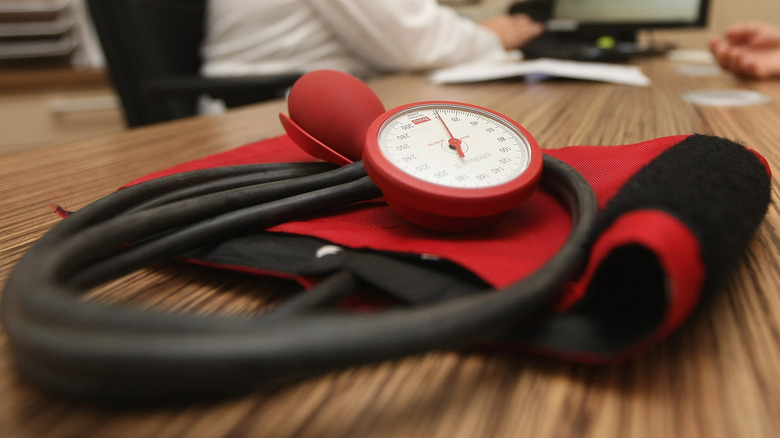What Your Systolic Blood Pressure Number Really Means
Most visits to the doctor start the same way. They weigh and measure you, then take you back to the exam room. Once you're seated, the nurse or medical assistant runs a few more routine tests before talking to you about your appointment. Of these tests, the blood pressure check is arguably the most common. The familiar cuff is wrapped around your arm and you sit there trying to breathe evenly while the nurse pumps the cuff full of air. One boa constrictor-like sensation later, and the nurse reads off a number to you.
This number is presented in the form of a fraction, usually something like "125 over 82." The routine is familiar, but for many, those numbers are still a mystery. While doctors will tell people if their blood pressure gets too high, that doesn't solve the mystery of what the numbers mean.
As the CDC puts it, the first number is the systolic blood pressure while the second number is the diastolic blood pressure. And though the numbers are presented together, they mean two distinct things.
It's a better risk indicator
Both numbers represent functions of the human heart. The top number, however, is often higher. It is this number, the systolic blood pressure, that many people latch onto. This measures the pressure on a person's arterial walls every time their heart beats (via the CDC).
This is also the number most doctors focus on when they are concerned about a patient's blood pressure, according to Harvard Health. Though an elevation in either number is cause for concern, Harvard states that studies have linked a higher systolic number with more severe consequences of prolonged high blood pressure. These include stroke and heart attack, among other conditions.
The CDC and the American Heart Association both state that a normal blood pressure range for adults is around 120/80 mm HG. A systolic number between 120 and 130 marks an area of elevated blood pressure, while 130 or higher is classified as high blood pressure. It is at this point when patients should speak to their doctors about high blood pressure treatments and other options to help lower their numbers.


